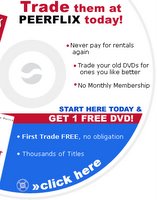VISIT ME NOW AT WORDPRESS
Hello everyone. I have officially moved to wordpress...
please update your rss feeds...and please visit me!
What's new in business highlighting effective web strategies, new web trends, and interactive web tools.
Hello everyone. I have officially moved to wordpress...

Jeremiah Owyang posted a rather unique entry on his blog discussing how writing in the style of a shish kabob provides a service to readers. Ah ha! Finally something I can relate too...yet another food analogy.
 There has been some talk about the MySpace generation someday moving on to the professional blogosphere once they “graduate” and enter the corporate world. However, instead of arguing whether or not this will happen, I would rather talk about the benefits of blogging for the new interns and/or new hires entering the workforce.
There has been some talk about the MySpace generation someday moving on to the professional blogosphere once they “graduate” and enter the corporate world. However, instead of arguing whether or not this will happen, I would rather talk about the benefits of blogging for the new interns and/or new hires entering the workforce.
 I had lunch at eBay the other day with a close friend of mine...THANK YOU!
I had lunch at eBay the other day with a close friend of mine...THANK YOU! I have had the privilege of interning at a great company for almost a year now and I have learned several valuable pieces of information. Along with learning skills that pertain to my job tasks, I have learned professional skills that will most benefit me in the future.
4. Communicate with your team
Internships are important since you are provided with the opportunity to learn and gain experience. Use this as an opportunity to explore and learn so you are prepared for the corporate world when you graduate. Make an effort to shine and constantly challenge yourselves.
Any questions, please let me know here or email me: christopher.salazar@yahoo.com
 Even though the US is one of the main leaders in technological development, other countries are starting to show off their innovations. Specifically, Spain is introducing a new internet WiFi concept called FON. The goal is to create a wireless network using a bottom-up approach. That’s right a bottom-up approach!
Even though the US is one of the main leaders in technological development, other countries are starting to show off their innovations. Specifically, Spain is introducing a new internet WiFi concept called FON. The goal is to create a wireless network using a bottom-up approach. That’s right a bottom-up approach!
 Some speculation has been going around that Google is going to start their own payment service like PayPal. Currently Google offers a unique service called Google Base, that allows online users to post information about items of interest.
Some speculation has been going around that Google is going to start their own payment service like PayPal. Currently Google offers a unique service called Google Base, that allows online users to post information about items of interest.

Aesthetics
Perceived Quality
Performance
Features
Reliability
Conformance
Durability
Serviceability
-------------------------------------------------------
So this is the easy part, but the hard part is answering this question:
"Which of these dimensions of quality should corporations focus on?"
Think about it for a while, answers to this question will come soon.
---------------------------------------------------------
FYI, I used MS Word as a blogging tool for this post...my reactions? 50-50...more to come later. For now find more information here


 I recently attended a presentation by Guy Kawasaki, author of “The Art of the Start,” at the new Martin Luther King Jr. Library in San Jose. His presentation was organized around the thought of entrepreneurship.
I recently attended a presentation by Guy Kawasaki, author of “The Art of the Start,” at the new Martin Luther King Jr. Library in San Jose. His presentation was organized around the thought of entrepreneurship.
 Ah HA! Google has done it again, and this time they are challenging the biggest of them all...Microsoft, more specifically Microsoft Outlook. Using Google Gmail accounts, all 10,000 San Jose City College students will be able to host their own private domain-name. Stephanie Hannon, publisher on Google’s Official Blog, suggests that this new service will create a stronger community for all SJCC students.
Ah HA! Google has done it again, and this time they are challenging the biggest of them all...Microsoft, more specifically Microsoft Outlook. Using Google Gmail accounts, all 10,000 San Jose City College students will be able to host their own private domain-name. Stephanie Hannon, publisher on Google’s Official Blog, suggests that this new service will create a stronger community for all SJCC students.
 In an interesting strategy to attract prospective students and parents to Santa Clara University, SCU is documenting the lives of 5 freshman as they voyage through the college life. How? Blogs...blogSCU allows prospective parents/students to read the "Campus Notebook" of five individuals as they complete freshman registration, orientation, and classes. But that is not all, you also get a look into their personal lives as some chose to live on and off-campus.
In an interesting strategy to attract prospective students and parents to Santa Clara University, SCU is documenting the lives of 5 freshman as they voyage through the college life. How? Blogs...blogSCU allows prospective parents/students to read the "Campus Notebook" of five individuals as they complete freshman registration, orientation, and classes. But that is not all, you also get a look into their personal lives as some chose to live on and off-campus.
The internet has brought several innovations that were unheard of 25+ years ago, and they keep coming. From Web 1.0, to Web 2.0, and now to Library 2.0, the internet is vastly changing our everyday lives. With the popularity of Google and other search engines, its no wonder Libraries are beginning to feel a bit wounded. What are libraries good for anyways when you have the powerful Google? Ah ha, perhaps the model that will save Libraries is *drum roll* “Library 2.0.”
Library 2.0 uses the resources of Web 2.0 technology to make information to users available wherever and whenever and for free.
One major component of Library 2.0 is RSS Syndication which enables the user to have the information readily available in real time in any application. Information delivered at the door step of the user.
Here are some important components of Library 2.0:
1. The Library is everywhere
Library 2.0 is available everywhere (anywhere there is internet) and will continue to reach more and more people as RSS becomes mobilized. In many cases this has already happened, many are texting Google to find information sent to their mobile devices. Google is succeeding, it sounds logical for Libraries to follow.
2. The Library has no barriers
Library 2.0 information is available at the point of need and available for re-use. No need to worry about missing books, special equipment to read past-time newspapers…if linked with Google and Amazon, the information is readily available at your convenience. In fact with the help of Google, we can create a world-wide catalogue of info encompassing local, regional, state, national, and world news. How about that?
3. The Library invites participation
Yes, this is one of the main components of Library 2.0 that will drive its success. The ability to create a community of library users. Using the likes of Web 2.0 tools (blogs, wikis, and RSS), users can rate resources on a scale from 1 to 10 and submit suggestions.
Key Takeaways:
 In my last post, The 5 Practices of an Exemplary Blog, I introduced some practices that can be used to run a successful blog. However, that is NOT enough, a publisher must remain committed and strive to be better. So to help with this, I am introducing another set of guidelines that can be used to enhance your user's experience and inspire conversations. These commitments have been introduced by Barry Posner, Dean of the Business school at Santa Clara University, but in a student-leadership context...instead, I am relating these ideas to Blogging.
In my last post, The 5 Practices of an Exemplary Blog, I introduced some practices that can be used to run a successful blog. However, that is NOT enough, a publisher must remain committed and strive to be better. So to help with this, I am introducing another set of guidelines that can be used to enhance your user's experience and inspire conversations. These commitments have been introduced by Barry Posner, Dean of the Business school at Santa Clara University, but in a student-leadership context...instead, I am relating these ideas to Blogging.
 I recently attended a presentation by the Dean of the Business school at
I recently attended a presentation by the Dean of the Business school at
The Five Practices of an Exemplary Blog
Practice #1: Model the Way
Successful blogs exemplify thought-leadership. They add-value to current, basic knowledge and introduce their own perspective. They carefully turn "data" into "information" by adding knowledge and this is a vital step in creating an audience. Exemplary blogs lead by example by showcasing their knowledge and revealing it for the whole world to learn and follow. Successful bloggers are not afraid to take risks, even when their thoughts are controversial.
Practice #2: Inspire a Shared Vision
Exemplary blogs not only lead the way, but they inspire others to join the conversation and provide value-added information to the world. There is no such thing as “my” vision, it is “our” vision and our conversation. In fact, the joint enthusiasm for a shared vision provides just a spark of inspiration for others to join the conversation amongst an emerging community—community of experts, leaders, and evangelists.
So what do you think about these practices? I want to here your thoughts and even additions…
 Just when I thought things could not get any better with Skype, I come across yet another genius idea. I've been having some great conversations on Skype, yet I am left trying to take notes and remember everything. Often I find myself struggling to write notes, listen, memorize, and talk all at the same time. But, fear no more..."HOTRECORDER" is here!
Just when I thought things could not get any better with Skype, I come across yet another genius idea. I've been having some great conversations on Skype, yet I am left trying to take notes and remember everything. Often I find myself struggling to write notes, listen, memorize, and talk all at the same time. But, fear no more..."HOTRECORDER" is here!
 "The Whole Word Can Talk For FREE"...this is the tagline for a new program called "SKYPE"
"The Whole Word Can Talk For FREE"...this is the tagline for a new program called "SKYPE"

Here are the key takeaways (taken directly from the article):
The first thing that comes to my mind is thought-leadership. A company must exhibit leadership in their field and invite others to take part in the overall conversation, this is very important.
However, the second point of enhancing brand visibility and credibility scares me a bit. Companies must not take this the wrong and start advertising their blog in the Google Sponsoring section just to appear first. In fact, companies should do the opposite…just sit back and be patient. YES, they should take the lead in the conversation, but encourage others to engage. In addition, it is important for a corporate blog to have “important links” that enable the user to learn more about a particular field. Again, the blog becomes a place where users go FIRST for information. (this all enhances the company’s visibility and credibility)
Lastly, speaking to the users is very important. The company must not only encourage comments, but they must listen and take action. Listening and taking action are keys for a successful blog.This is all good advice for both corporation and personal blogs. I encourage blogging for both upper management and employees.
In fact, Sun Microsystems is a company that has fully engaged the concept of blogging as they have compiled all 2,000 individual employee blogs into one index…visit here: http://www.blogs.sun.com/roller/main.do
Interesting, isn’t it?
Find blog posts, photos, events and more off-site about:
blog, blogosphere, blogging, sun
 I've been doing a lot of thinking about syndcation, Jeremiah and I have had quiet a few discussions. Below are just some thoughts I have, but the most important is the questions I raise later. I'm really thinking about RSS and how it can benefit each aspect of business from the customer to the employee..
I've been doing a lot of thinking about syndcation, Jeremiah and I have had quiet a few discussions. Below are just some thoughts I have, but the most important is the questions I raise later. I'm really thinking about RSS and how it can benefit each aspect of business from the customer to the employee.. Key Measure = How long each user spends on each page
While everyone else was copying the next company’s moves, I looked for something else. Yes, whatever they were doing worked, but why follow them? I searched for a strategy that was unique, yet still effective. I wanted to be successful… This strategy has worked for over 10 years, and people still ask what my secret is.
…remember RSS is a vehicle, so sit in the driver’s seat and drive!
Find blog posts, photos, events and more off-site about:
blog, RSS, syndication, indexers, technorati

 Blogs have attracted a lot of attention lately and seem to be a new trend in Web. Yes, blogs enable users to collaborate and exchange ideas on an informal basis. Yes, it is easy to use and cost-effective. However, I have wondered if blogging can benefit employees and corporations.So my Question is...
Blogs have attracted a lot of attention lately and seem to be a new trend in Web. Yes, blogs enable users to collaborate and exchange ideas on an informal basis. Yes, it is easy to use and cost-effective. However, I have wondered if blogging can benefit employees and corporations.So my Question is...

Now imagine this scenario but on a larger scale - in the business world. Blogging allows businesses to converse with their customers on an informal level. Businesses just need to "listen" to their customers, organize the information, and take action. It's not enough for companies just to create a blog and leave it out there, they need to constantly evolve according to their customer's needs and wants in order to establish and maintain their competitive edge. Blogging allows businesses to do just that!
A perfect example of a business that did not pay attention to the blogosphere is Kryptonite. Word spread in an online group discussion that the bicycle locks made by Kryptonite could easily be picked with a Bic pen. Just two days later, an online video had already been made illustrating how to pick the locks. This caused severe damage to Kyrptonite itself especially a loss of sales. For more on this, visit Why There's No Escaping the Blog
I came across an interesting article about blogging personalities written by Sheila Ann Manuel Coggins . Here is a clip of her article (to view the whole article, visit her website).
2. The Artist - Your blog captures the way you see the world. You love images more than words. Blogging only makes sense to you if there are photos or pictures - either of daily life, special people, memorable events, or works of art.
3. The Writer - Words captivate you. And, you like to capture words. Blogging enables you to write often. It also provides a place for you to share what you write with a reading public. You can be funny, inspiring, intelligent, cynical, or morbid. It doesn't matter what you write about in your blog. It only matters that you write.
4. The Daily Grinder - You love blogging because it's like therapy. You can write about anything and everything that happens to you - from the food you ate to what you were doing when you heard the latest 'breaking news.' Being able to communicate with your friends (online and/or real life) through your blog is important to you.
5. The Patchworker - Blogging is a way for you to comment on and consolidate news, current events, useful resources, and other relevant matters. In your blog entries, you usually add links to other people's blogs or websites with original content instead of writing your own.
I am most like the PUNDIT with a little bit of the Patchworker. I use blogs as a medium for not only communicating my ideas, but seeking information from my community and the business world. In addition, I enjoy reading what others have to offer because it provides me with a new prospective. Perhaps something that I did not think of. Blogs keep me up to date with the business world, enable me to communicate with the world, and provides a space to voice my opinions.
Some predict the web will soon be integrated in just about everything. The web is such an undervalued tool that many companies overlook. The WEb is the SLEEPER to success in any industry. But why not? The web is fast, efficient, cheap, and scalable. Companies should be begging to use the tools of the web. I am not kidding. In fact, I recently read about how the internet is "ubiquitous" and "amorphous." For more info, click here.
VERY SIMPLE! However, my question is how much will the adapters be? But, wouldn't it be nice to have your refrigerator or TV hook up to the internet. Hmm, just the thought of watching sports and checking my mail at the same time is HEAVEN!
But, there are some other features that this "socket" can provide, that I foresee is the future! Close your eyes, and image this:
You are in the office and remember "Oh, I need to get a few things from the grocery store. But, what did I need to get?" Well, with your network-connected refrigerator you can connect through a mobile phone or latpop and check what you have in your refrigerator and what you need. Doesn't this sound like a dream-come true?
Or if this doesnt sound good, you can turn of and on all gadgets in your home with a simple switch that is connected to the network. For example, you are outside and say to yourself "Did I turn on the washer?" Instead of going inside your home, checking the washer, and risk getting distracted from cleaning the yard, you can turn it on with a simple flip of the switch. Hm...now can you imagine what the feature would be like?
I dont know about you, but have you ever watched an episode of the "Jetsons" and wondered, "When will we ever have technology like them?" Yes, I know its a long stretch, but we are getting closer. But, the only way we can get there is with the WEB as our tool!
Reason One: Google Loves the Links in Weblogs
A match made in heaven! Google loves links, and weblogs are all about links! Every time a blogger links to a website, its Google rank increases. If enough bloggers pile onto that link, it can start to have a significant impact on a sites' Google rank. But links by themselves aren't enough to give Weblogs their influence on Google. That comes from a more recent tweak in the Google search engine:
Reason Two: Google loves Fresh Content
Google frequently updated sites much more often on their index. The primary reason for this was to increase Google's access to articles from news sites, like CNN and the New York Times. Google even added a "News" section at the top of its search results, to present "news stories relevant to users' queries". [2]
But Google didn't stop there. Its "insatiable appetite for fresh content spilled over to any frequently updated websites, including Weblogs." If Google noticed a page updating frequently, it started visiting that page much more frequently so it could suck the latest content into its database of over 3 billion documents. As they put it in their latest press release, "Google refreshes millions of web pages every day to ensure that Google users have access to the most current information."
Putting it Together: Google loves Weblogs
Weblogs are perfect for Google: frequently updated websites are full of links. It's no wonder that Google loves Weblogs so much. Of course, if that's the case, why doesn't every Google search land the searcher on a blog? That question underscores a crucial point about weblogs and Google: weblogs are the voters in this political system. In other words, weblogs don't get elected by Google... but the sites they voted for do.
So even if you never visit a blog, you're being influenced by them. The collective votes of the weblog community are determing what sites you see on Google, the world's largest search engine.
The Google Power of weblogs will only grow with time. As weblogs get more traffic, their votes will count for more: Google weights fresh votes more than older votes. Blog search engines like Daypop and blogdex are spreading links more quickly. As weblogs get more traffic, their votes will count for more. Not only do their votes count for more as they each get more traffic, but the heavy cross-linking magnifies the impact of this collective voting machine. This greatly magnifies the Google Power of weblogs.
Weblogs: They ain't no Fad
Even if you've never heard of weblogs, they're having a powerful impact on your web searches every day. So to answer the New York Times, are weblogs just a fad? Anything that can potentially influence over a billion web searches every week sounds like more than a fad to me.
*google news*
What does everyone think? Are weblogs a fad?